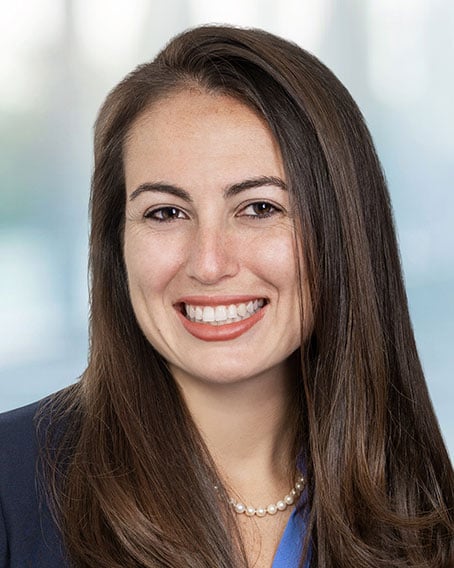On June 9, 2025, Governor Kotek signed Senate Bill 951, An Act Relating to the Practice of Health Care (“SB 951”), into law. This law strengthens Oregon’s existing Corporate Practice of Medicine (“CPOM”) restrictions by limiting how management service organizations (“MSOs”) can provide services to certain professional services organizations (“supported practice model”). SB 951 puts pressure on use of the supported practice model in Oregon by imposing limitations on the ability of a professional corporation (“PC”) shareholder to hold ownership, management, or employment positions in the MSO.
Background
Since 1947, Oregon has actively enforced CPOM restrictions, joining the ranks of states that limit corporate control over medical practices.1 Under the state’s current regulatory framework, unlicensed individuals and entities are prohibited from owning 51% or more of a PC or from directly employing physicians.2 To ensure compliance with these regulations and maximize the allocation of physicians’ time and resources to patient care, many PCs in Oregon and other states with CPOM restrictions have engaged MSOs to take on the administrative aspects of running a PC. In these arrangements, MSOs handle nonclinical functions for the PCs such as revenue cycle management, compliance, staffing, human resources, and marketing. Because MSOs provide only administrative support and do not engage in clinical practice, they are not required to be owned by licensed individuals or entities, and thus provide a pathway for private equity firms, venture capital funds, and other unlicensed entities to invest in health care support businesses. In addition to providing PCs with access to capital, many MSOs also offer equity ownership or employment opportunities to the PC’s physician shareholders, thereby supporting the long-term growth of both the PC and the MSO.
As discussed in more detail below, SB 951 will necessitate review of physician practice arrangements that have been in place in Oregon for decades. Below are the key takeaways from the new law and the practical implications related thereto.
Key Takeaways
Timeline and Scope
Although SB 951 takes effect immediately, the provisions related to MSO ownership and control have staggered effective dates. Specifically, the restrictions related to MSO ownership and control take effect on January 1, 2026 for MSOs and professional medical entities that are incorporated or formed in Oregon on or after June 9, 2025 and January 1, 2029 for MSOs and professional entities that existed before June 9, 2025. Importantly, the law only applies to the state’s corporate practice of medicine and nursing regulations,3 not to Oregon’s corporate practice regulations for other licensed professions such as dentistry and veterinary medicine.4
Limitations on Overlapping Control between MSOs and PCs
SB 951 imposes new restrictions on the relationship between the MSO and PC physician shareholders by prohibiting MSOs and their shareholders, directors, members, officers, or employees from owning a majority of shares in a PC or collectively owning or controlling a PC with another physician if such physician is either a shareholder, director, member, manager, officer, or employee of the MSO. For instance, neither the MSO’s Medical Director nor any shareholder of the MSO can be the controlling shareholder of the PC. The exceptions to the above limitations include the following:
- Physicians who own 10% or less of the PC can also be an independent contractor of the MSO and provide services for fair market value so long as they do not have ANY other tie to the MSO – including either as a shareholder, employee, officer, or director.
- A company could therefore use this exception to have a physician serve the MSO in an administrative role as an independent contractor and also be a 10% shareholder in the PC.
- A physician can be a shareholder if his or her shares in the MSO are “incidental” and without relation to the individual’s compensation as a shareholder, director, officer, employee, or independent contractor.
- The term “incidental” is not defined in the law and will presumably be subject to further interpretation. One possible interpretation is that the equity was acquired unknowingly through a 401(k) or similar investment and not purchased directly by the physician or issued to the physician by the MSO. This restriction is likely to be the most challenging in terms of operational impact.
There are also limitations on acquiring or financing the acquisition of the majority of the shares of a PC. However, such new restrictions are limited to the shares of the PC and do not inhibit MSOs from purchasing, leasing, or taking assignment of a right to possess the non-medical assets of a PC in an arm’s-length transaction. In fact, such transactions are expressly permitted under the law. Given the new limitations do not take effect for existing entities until January 1, 2029, add-ons and changes of ownership to existing entities will not be subject to these limitations until that date.
Restrictions on Permissible Services Provided by MSOs
SB 951 reaffirms traditional CPOM principles by making clear that all clinical decisions must be made by a physician. The law also expressly prohibits MSOs from exercising final decision-making authority over several administrative and business functions such as hiring physicians, setting work schedules and compensation, setting policies for billing and collection, and negotiating contracts with third-party payors. These limitations should not materially change an MSO’s scope of services or operations in Oregon, as the law is clear that MSOs can assist with all of these functions, so long as they are not controlling the clinical functions of the PC or impacting medical decision-making. For example, the law specifies that it is permissible for the MSO to provide support to the PC for the traditional type of MSO activities including accounting, budgeting, personnel management, advertising and providing direction concerning a PC’s participation in value-based contracts, payor arrangements or contracts with suppliers or vendors, setting criteria for reimbursement under a contract between a PC and an insurer, compliance functions, and advising on contracts with third-party payors.5
From a compliance perspective, MSOs will need to ensure their template Management Services Agreements (“MSAs”) are updated to reflect the specific language included in SB 951 regarding the PC’s right to control certain business functions. While we do not anticipate that this change will materially impact MSOs operations, we expect Oregon regulators will review MSAs closely to ensure they track the language of SB 951 and respect the boundaries of permissible MSO-PC arrangements related to the list of services enumerated above.
Limitations on the Use of Stock Transfer Restriction Agreements (“STRAs”).
SB 951 also limits the use of STRAs—contractual arrangements often used in MSO-PC arrangements to ensure that there is continuity of patient care in the event of the death, disability, or other circumstance whereby a shareholder can no longer continue to own equity in the medical practice. SB 951 prohibits the use of STRAs, unless they fall within a set of narrowly defined exceptions, including:
- Suspension or revocation of a shareholder’s professional license,
- A shareholder’s disqualification from holding stock or interest in the PC,
- A shareholder’s exclusion, debarment, or suspension from a federal health care program,
- A shareholder’s indictment for a felony or crime that involves fraud or moral turpitude,
- The PC’s breach of contract for management services with the MSO, and
- The shareholder’s death, disability, or permanent incapacitation.
The limitations above are more stringent than those in many other states, so MSOs operating in Oregon will need to carefully review the use of STRAs or other ownership and conveyance documents related to PCs.
Option agreements between two licensed physicians are still permissible.
Understanding how the above could impact the risk of financial and tax accounting consolidation is also a key consideration to be reevaluated by those entities impacted by the law.
Prohibition on Use of Many Types of Restrictive Covenants
SB 951 also imposes new limitations on standard restrictive covenant clauses commonly used in the supported practice model, prohibiting and voiding most noncompete, nondisclosure, and non-disparagement agreements between MSOs and medical professionals employed by PCs, for all such agreements entered into or renewed on or after the bill's signing date.
Specifically, SB 951 voids noncompetition agreements entered into by medical licensees that restrict the practice of medicine or nursing except under very narrowly defined circumstances that would be challenging to satisfy in a supported practice model.
The law further voids nondisclosure or non-disparagement agreements between medical licensees and MSOs, hospitals, and/or hospital-affiliated clinics (“contracting entity”), with limited exceptions.
In sum, the new limitations set forth in SB 951 will require clients to assess their current contracting practices. These contractual considerations should be discussed with sophisticated counsel to ensure compliance with the law.
Conclusion
SB 951 continues the trend we have observed in Oregon of increased regulation of health care transactions in the state.6 Navigating the implementation of SB 951 in combination with the state’s existing health care transaction laws will require potential investors to consult sophisticated counsel about any needed changes to the structure of their proposed transactions.
Ropes & Gray is continuing to monitor both implementation of this law and updates to similar health care transaction laws across the country. If you have any questions, please do not hesitate to consult the authors or your usual Ropes & Gray advisor.
- 1947 the Oregon Supreme Court decided State ex rel. Sisemore v. Standard Optical Co., 182 Or. 452, 188 P.2d 309 (1947), holding that an unlicensed corporation’s employment of an optometrist to perform exams and fit glasses constituted the unlawful practice of optometry and was contrary to public policy.
- O.R.S. 677.080; O.R.S. 58.375.
- The law further expands the scope of the state’s CPOM prohibitions to include the practice of naturopathic medicine, which it defines as a “discipline that includes physiotherapy, natural healing processes and minor surgery and has as its objective the maintaining of the body in, or of restoring it to, a state of normal health.” SB 951 Sec. 5; ORS 685.010(4).
- SB 951 expressly exempts certain providers from the law’s new CPOM limitations, including hospitals, behavioral health facilities, long-term care facilities, residential care facilities, licensed opioid treatment programs, PACE organizations, mental health or substance use disorder crisis line providers, and tribal health programs. SB 951 Sec. 1 (e).
- SB 951 Sec. 1(c).
- O.R.S 415.50 was signed into law by Governor Kate Brown on July 27, 2021 and became effective on January 1, 2022.
Authors
Stay Up To Date with Ropes & Gray
Ropes & Gray attorneys provide timely analysis on legal developments, court decisions and changes in legislation and regulations.
Stay in the loop with all things Ropes & Gray, and find out more about our people, culture, initiatives and everything that’s happening.
We regularly notify our clients and contacts of significant legal developments, news, webinars and teleconferences that affect their industries.




